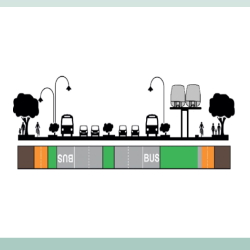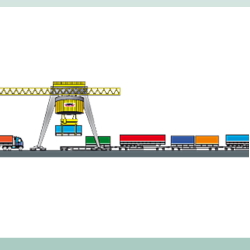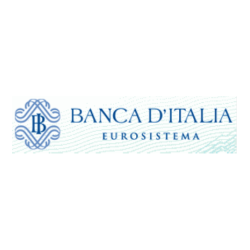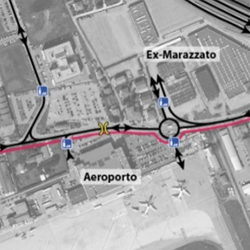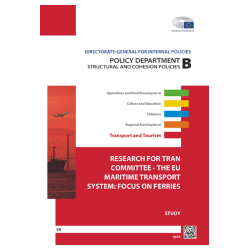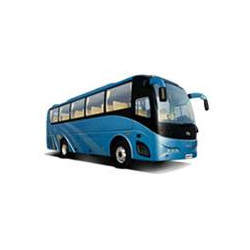- All
- African projects
- assessment
- assessment selected projects
- Assessment selected projects 2
- Assessment selected projects 3
- Assessment selected projects 4
- ASTRA
- Cost Benefit Analysis
- Electric mobility and ITS
- MOMOS
- planning
- planning selected projects
- planning selected projects 2
- planning selected projects 3
- planning selected projects 4
- planning selected projects 5
- projects
- Railways projects
- research
- research selected projects
- research selected projects 2
- research selected projects 3
- studies
- studies selected projects 1
- studies selected projects 2
- studies selected projects 3
- studies selected projects 4
- studies selected projects 5
- TRTingegneria
- TRUST
- urban mobility
- Shanghai Jinshan Marina Urban Planning (China) Following the winning of the international context by GALA engineering, TRT was selected to carry out the design of road transport network and the Public transport system in the marina of Jinshan New Town, located south of Shanghai. The project integrates two innovative solutions: multimodal transport system with bus, rail and innovative systems dedicated transport system for the cruise port planned to accommodate thousands of tourists daily Area: 2.6 million of square metres Definition of parking areas according to a wide range of functionalities serving more than 150 000 users. Definition of parking pubs to accommodate seasonal touristic flows leaving form the new cruise port Definition of cycling and pedestrian paths to connect the new seaside and the green areas
- Gathering additional data on EU combined transport This study, committed by DG MOVE to TRT and MDS, presents a detailed analysis of combined transport (CT) operations in the European Union (EU) and provides quantitative and qualitative evidence of the current status of the European CT sector. By updating the information with respect to the 2015 fact-finding study (entitled “Analysis of the EU Combined Transport”) the study was designed to help DG MOVE to identify measures that would be effective in supporting the CT sector. The analysis was supported by a survey, which allowed the consultants to collect primary data on CT operations for the reference year of 2015 from a full cross-section of EU Member States for different modal combinations and industry sectors. For each combination of modes, detailed data on the volumes of transhipments and the main costs involved in CT operations are analysed and discussed both at a European and a Member State (MS) level and further analysed through a series of statistics and indicators. The study also examines the current use of regulatory support measures introduced by Directive 92/106/EEC; these measures address issues such as own-account transport and road haulage cabotage. By offering a number of indicators on CT operations and insights into the related legislative framework, the study represented a key information source for the completion of the European Commission’s Impact Assessment of the amendment to Directive 92/106/EEC.
- Technical assistance to the CAPTAIN project – Adriatic IPA CBC 2007-2013 TRT has been selected by RAM (Rete Autostrade Mediterranee) an in house company of the Italian ‘Ministero delle Infrastrutture e Trasporti’ to provide technical assistance to the CAPTAIN project of the Adriatic IPA 2007-2013 programme. The project developed in 2016 involved 10 partners (institutions, research centers and port authorities). CAPTAIN project aims to collect and share the results Adriatic MoS, EA-Sea-Way, Adrimob projects, already financed by the IPA Adriatic Programme 2007-2013, with particular attention to the resolution of bottlenecks and the missing links for good transport in the partner countries (Italy, Croatia, Montenegro, Greece, Albania, Bosnia and Herzegovina, Slovenia). The technical assistance activities concerned: the follow up of the feasibility study of the Adriatic MoS project; the coordination of EA Sea-Way and Adrimob feasibility studies; the dissemination of good practices and technical coordination activities during meetings and workshops.
- Statistical sample survey on the international freight transport 2016-2019 TRT has been commissioned by the Banca d’Italia (Italian Central Bank) to carry out a four-year survey on the international freight transport, in order to: identify the unit costs of different transport modes for imports and exports; identify the components of ancillary costs; show in a matrix the abroad goods exchange; define the market share held by Italian actors in the maritime, air and rail transport sectors; estimate the turnover made by Italian ship-owners abroad. This project follows similar surveys managed by TRT since 1998, whose results are used by Banca d’Italia to estimate the Balance of Payments for the corresponding years.
- Traffic impact study of new settlements in the area of the Treviso airport (Italy) The study analyzes and offers possible solutions to the mobility impacts generated by the future urban developments of the Antonio Canova airport in Treviso, as well as the nearby commercial area Ex-Marazzato and the multipurpose development area called AirCenter. The proposed solutions have been tested by using a dynamic micro-simulation tool. The application of the micro-simulation techniques allows an in depth analysis of the impact of traffic flows generated by new urban developments on the road network.
- The EU Maritime Transport System: Focus on Ferries TRT has drafted an initial Briefing that provides the Members of the Committee on Transport and Tourism of the European Parliament with a clear overview of the EU Maritime Transport System, with a special focus on passenger ferries and the role they play in contributing to the multimodality of EU transport. The Initial Briefing discusses new opportunities in the future development of the ferry industry in the EU (technical innovation and tourist promotion). The specificities of the ferry industry are addressed considering history, size, growth, employment, performance of the industry, impact on environment, safety records, characteristics of the operations at different scale (urban, regional and national), possibility of integrated ticketing and competition with infrastructures (fixed links) and services (low-cost carriers).
- Study on specific driving and rest time rules for bus and coach drivers in the EU This study analysed appropriateness and impacts of a possible legislative revision to current EU rules on driving and rest times. Specifically, this study investigated the possibility to introduce a distinct rulemaking to discipline driving and rest time rules for professional bus and coach drivers. The study carried out a questionnaire-based survey covering 8 EU Member States which have been selected in a manner that allows to compare complementary country profiles. An extension of the analysis has been granted in 2015 so to shoulder IRU position for a legislative revision in 2016 of the requirements on: 12-day derogation, weekly rest and daily spread-over.
- Improving the Fuel Economy Policies Implementation Tool (FEPIT) The FEPIT (Fuel Economy Policies Implementation Tool) is used by the International Energy Agency (IEA) for estimating the impact of some policy measures on the average fuel economy of newly registered cars. This tool is expected to support decisions to implement policy schemes aimed at getting the Global Fuel Economy Initiative (GFEI) target of 4.2 lge/100 km in the year 2030. The model allows to analyse the impacts of several policies aimed at reducing the level of fuel duties taking in consideration the specification of the vehicle fleet of a particular country and of different scenarios. This study provides an updated version of the FEPIT model which contains new parameters coming from a more rigorous methodology. In this version a user guide has also been produced.
- Ex-post evaluation of the road transport social legislation and its enforcement In two distinct assignments, TRT has focussed on the EU legislation currently in force in the area of commercial road freight transport sector. Both entails an ex-post evaluation of the relevant EU norms governing: access to the occupation (Regulation 1071/2009), access to the international road haulage market (Regulation 1072/2009), social aspects (driving times, rest periods and working time) of the road transport sector including enforcement mechanisms across the EU Member States (Regulation 561/2006 and Directives 2002/15/EC and 2006/22/EC). In both assignment an assessment is carried out with respect to the actual performance of these legislative interventions in terms of achieving their objectives, as well as the overall impacts (both intended and unintended) on societal, economic and environmental issues and possible requirements for future action.

